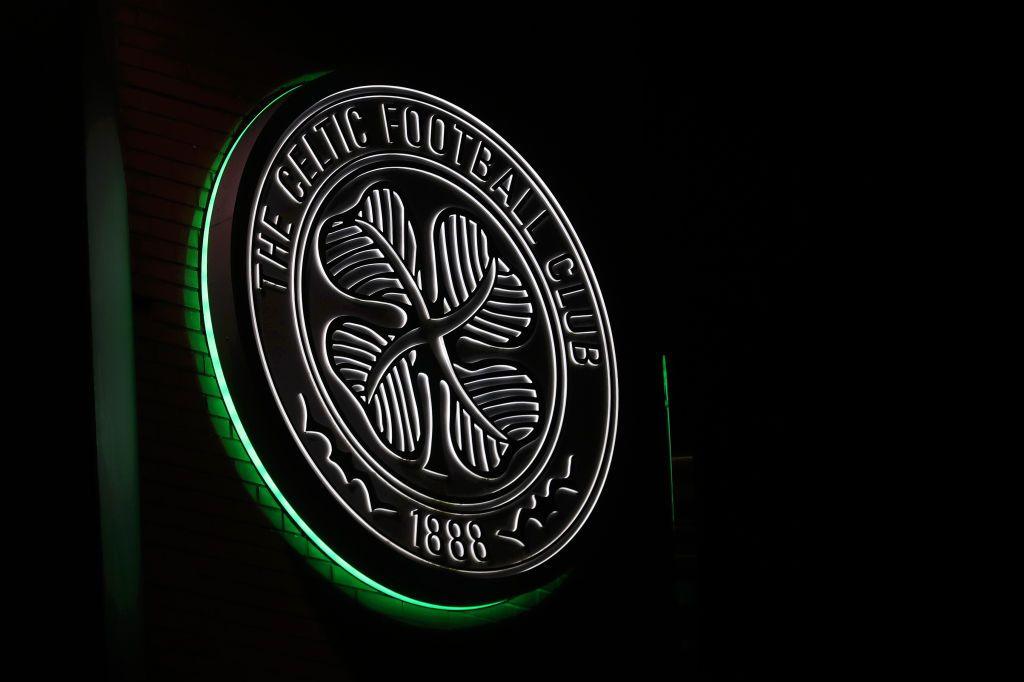Player trading, Europe & stability - how Celtic have built domination
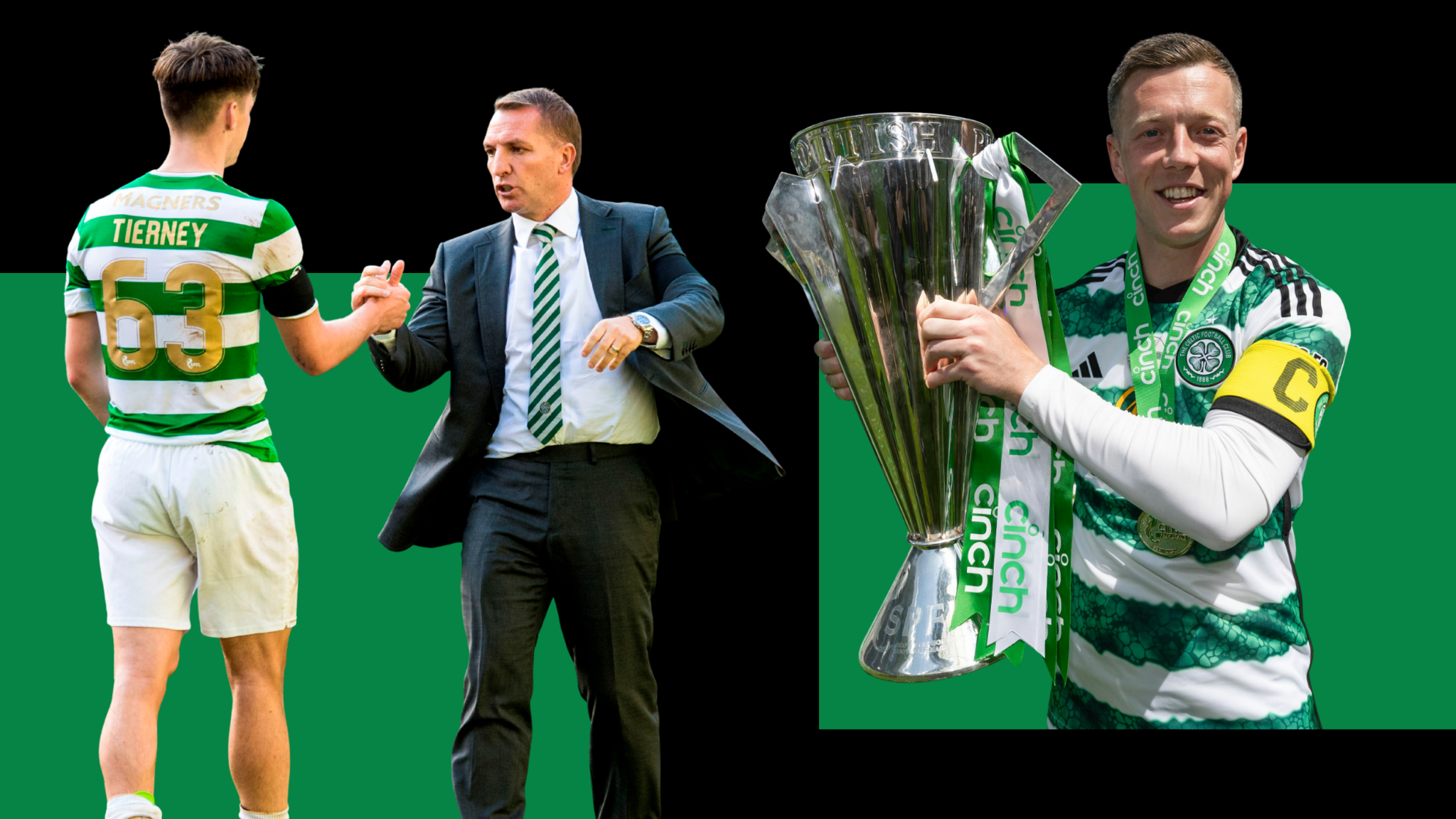
Celtic's golden era of success and silverware shows few signs of abating
- Published
As preparations were being finalised in the UK capital for the London Olympics, 430 miles north, Celtic were celebrating their first league title in four years.
It was a sunny but cold day in Ayrshire and the year was 2012. Neil Lennon's side had just thumped Kilmarnock 6-0 at Rugby Park.
As the Parkhead side celebrated, city rivals Rangers were fighting just to stay afloat after falling into administration two months earlier.
In turbulent waters, the tide was turning in Scottish football, but few could have predicted it would lead to a period of single-club dominance unprecedented in the Scottish game.
Some argue Celtic's dominance started long before that. The evidence is strong, especially off the field, but on the pitch, the run that led them to 13 league titles in 14 seasons as well as eight Scottish Cups and eight League Cups, started that afternoon in Ayrshire.
It would be obvious and easy to find the evidence of Celtic's run in the demise of their rivals. After all, it has been a full 40 years since Aberdeen became the last club outside the Glasgow giants to take Scottish football's biggest prize.
In Scotland, the spoils are usually shared between Glasgow's big two, but there is more to Celtic's success than the opportunity granted to them by the collapse of Rangers. As the famous American football coach, Vince Lombardi, once said: "The man on top of the mountain didn't fall there."
'Off days don't exist' for Celtic 'mentality monsters'
- Published26 April
Celtic's success shouldn't feel 'normalised'
- Published26 April
Celtic's Scottish league dominance in numbers
- Published26 April
On the pitch
There are very basic ingredients to success in football. Get the right manager to lead the right mix of players and achievements should follow. Of course, a good business model underpins all of that - more on that later.
Consistency matters, on the pitch and in the dugout. In the 13 seasons that have come and gone since that win at Rugby Park, Celtic have been managed by just four men.
Neil Lennon and incumbent Brendan Rodgers have had two separate stints, but management stability cannot go unnoticed, or unmentioned, in the Celtic success story.
In Rodgers and Ange Postecoglou, the club has also employed managers whose success in Glasgow has led to Premier League callings.
Of the four, only Ronny Deila had a win percentage of below 70%. Perhaps not surprising at a club like Celtic, but remember, during the current period of domination, Celtic have won the domestic treble on five occasions. Winning, yes, but also winning convincingly and consistently.
As seasoned football pundit and former Scotland winger Pat Nevin suggested: "They've chosen good managers.
"They've stuck with it well and they've not panicked at any time. There's been a few occasions when you've thought, 'it's not gone that well', maybe in European football, and they might have panicked, but they generally didn't do that, so there's been a real continuity."
'Desmond showed faith when others didn't' - Rodgers
Player trading model
Celtic's recent dominance on the pitch has been mirrored by their financial results from the boardroom. In football, one doesn't simply follow the other - but it helps.
They have avoided racking up huge debts to secure their silverware. It has come through financial prudence and a business plan based on two key areas: player trading and participation in European competition. Both have contributed hugely to Celtic's success.
Player trading success looks simple on paper – make more money from selling than you spend on buying and continue to have success at the same time. It's an equation with so many variables, that few clubs crack the code.
Celtic shifted their approach to player trading around 2004. Their basic principle was to prioritise the signing of young players under the age of 24. According to the football statistics site Transfermarkt, since season 2011-2012, Celtic have spent around £213m on players and have brought in around £260m.
In only four of those seasons has the club spent more on players than it made selling. Success stories include the sale on Matt O'Riley to Brighton & Hove Albion for around £25m, Jota to Al-Ittihad for £25m and Kieran Tierney to Arsenal for £23m.
Selling big players and re-investing sensibly until the next one comes along has been the key. Compare the Glasgow club's record to that of Manchester City, who made profit in player trading in just one of those seasons and made an overall loss on player sales of more than £1bn.
Celtic are by no means the most successful club in Europe when it comes to player trading. Portuguese club Benfica, for example, have made a profit nearing £640m in player trading over the past 10 years, but successful player trading has become more than just a financial fall back for Celtic when they cannot rely on the riches of the Champions League.
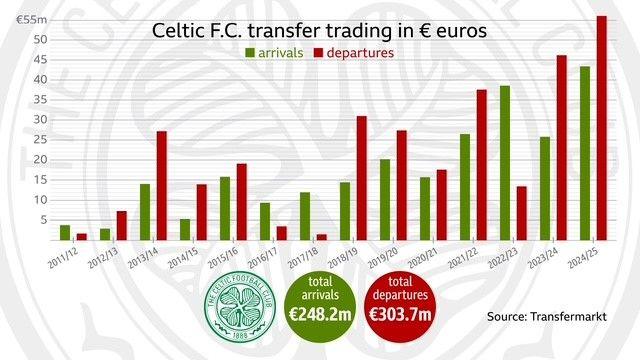
The European factor
And it's the Champions League where they have generated the most cash. In the 14 seasons in question, Celtic have qualified for the competition's group stage or league phase seven times.
This year, excluding ticket sales and hospitality, Celtic made more than £30m from participation alone. Compare that to the £4.5m the club picked up for winning the league and you can understand why they see Champions League qualification as crucial to long-term growth.
The man who pulls the balls from pots on Champions League draw day is Uefa's deputy general secretary, Giorgio Marchetti. He knows how crucial participation is for clubs like Celtic these days - but not just for the bottom line.
"Participating in the Champions League and the other Uefa competitions is very important for every club," he said.
"The European stage offers clubs, their coaches, their players, development opportunities, exposure, status and it boosts the excitement and enthusiasm of the fan base."
It also offers greater sponsorship opportunities and influence in high places. Celtic's former chief executive and now club chairman, Peter Lawwell, has been a key figure on the European Club Association board for many years.
Of course, participation is one thing, but there's no denying Celtic have mostly struggled at the top table. What the club has been clever to market is the atmosphere at Celtic Park on European nights.
"Celtic is a historic European club with a big and passionate fan base," Marchetti said.
"Having been there personally recently, I can confirm the atmosphere at Celtic Park is one of the most exciting football atmospheres that you can experience."
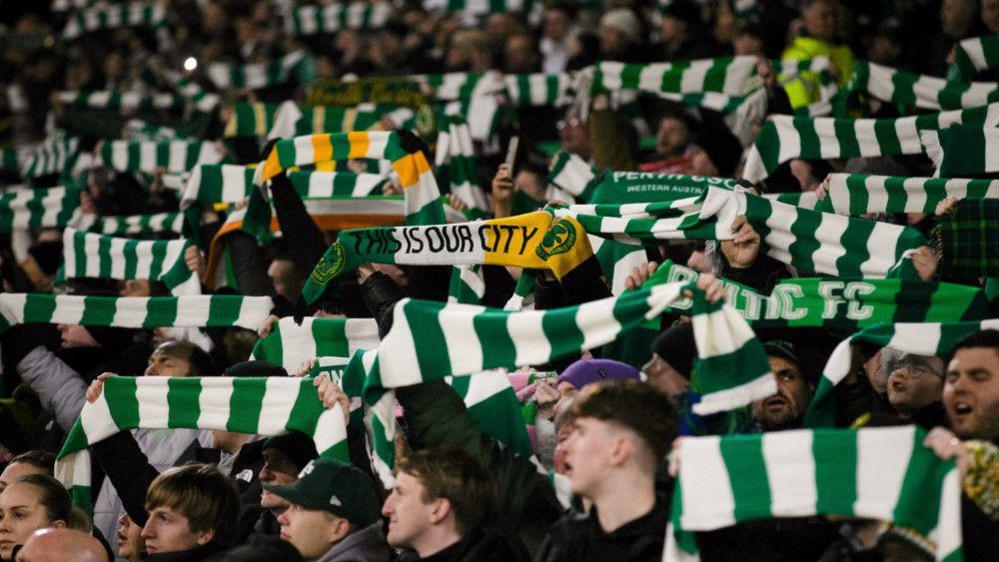
Celtic supporters had some memorable nights in this season's Champions League
Financial advantage
In truth, successful player trading and increased participation in the Champions League have fundamentally contributed to Celtic becoming financially untouchable in Scottish football in recent years.
The club has become a well-oiled machine, churning out trophies for their fans and profits for their shareholders. In only two of the past 14 seasons have Celtic posted a loss - and one of those was during a global pandemic.
Compare that to Rangers, who last achieved post-tax profit in season 2012-13. The Parkhead club's latest figures showed a turnover of £124.5m, more than £40m above their closest rivals and a whopping £108m more than third-placed Hibernian.
During Celtic's years of football domination, they have made a combined profit of £112m. In stark contrast, Rangers posted a combined loss of £132m.
Football finance expert Kieran McGuire, from Priceoffootball.com, thinks their figures and business model will be envied by many.
"If you contrast it to clubs in England, in season 2023-24, 19 of the 20 clubs lost money," Maguire said.
"The only club to have made a profit is West Ham, who have a stadium that is being subsidised by the local taxpayer.
"They have had relatively modest wage bills, certainly in comparison to south of the border, but the wages compared to the rest of Scottish football are normally in the region of 10 times the likes of St Mirren, Ross County and St Johnstone - and probably four times that of Hibs, Hearts and Aberdeen."
Despite this, Celtic fans have for many years called for more investment from the profits made - something Maguire can understand, to a point.
"They could perhaps have been more ambitious, but I think that, given Celtic themselves have had historic financial issues going back a long time, under the current ownership, they have been a little more cautious," he said.
Boardroom stability
That caution has led to stability. In recent weeks and months, we have witnessed what uncertainty can do to global business. Business craves stability, not only in the marketplace but in the boardroom. Football is no different.
Since 1999, Celtic have been essentially controlled by just one man, Irish businessman Dermot Desmond. Since Desmond took control in the east end of Glasgow, the only other current Scottish Premiership club not to have changed ownership is Ross County.
The majority of the league's other clubs have changed hands twice in the same period. Boardroom stability cannot be underestimated in the world of Scottish football, not just for the bottom line but for influence and muscle it can afford clubs on the boards of the various governing bodies.
Geoff Brown was chairman of St Johnstone from 1986-2011. "Football boardrooms have changed dramatically," he said.
"I'm not sure how many clubs actually have a working boardroom today. When you hear people talking about boardroom decisions, that can actually be quite unusual. For me, the Celtic board has worked constructively and I would hold it in very high esteem."
Impact on the Scottish game
Watch Celtic's title celebrations
With Celtic disappearing over the horizon, what is left in the rear view mirror?
Other than providing a successful model for others to follow and European solidarity payments made to other clubs, there's little evidence to suggest their continued dominance has had any positive impact on the Scottish game in general.
In fact, Maguire believes it may even be harmful to the Scottish football brand.
"It makes it that much more difficult to sell the product globally," he said.
"What fans like is uncertainty and jeopardy and Celtic have been so successful, that if you know the Scottish Premiership is going to be effectively sewn up by January or February, then why bother to turn on the television?
"TV audiences like not knowing what the outcome is going to be and Celtic's dominance has taken that out of Scottish football."
What the future looks like
Who knows what the landscape of Scottish football would look like now had Rangers not imploded in 2012, but the manner in which Celtic have dominated through a business model based on stability and prudence, suggests they had a strong case for supremacy in any case.
The one thing footballing history has taught us, though, is that dominance usually comes to an end at some point. For this to happen in Scotland, clearly Rangers need to properly find their feet, on and off the pitch.
With takeover talks ongoing at Ibrox, fans are optimistic that Celtic's dominance could soon be properly challenged by fresh investment from the United States.
However, if the club is to be taken over, the new owners should be under no illusion about the challenges they face to restore Rangers to the top of Scottish football. For the pendulum to swing properly, Rangers must start being successful in areas where their rivals have been untouchable.
Short-term fixes must give way to the laying of proper foundations. With the proper funding, they must find managers who can deliver domestic success that leads to Champions League participation, use the cash from Europe wisely and develop an enviable player trading model, all underpinned by long-term boardroom stability.
If all of that seems easy enough on paper, they should be reminded that a blueprint can be found just a few miles across the city.
Related topics
- Published26 April
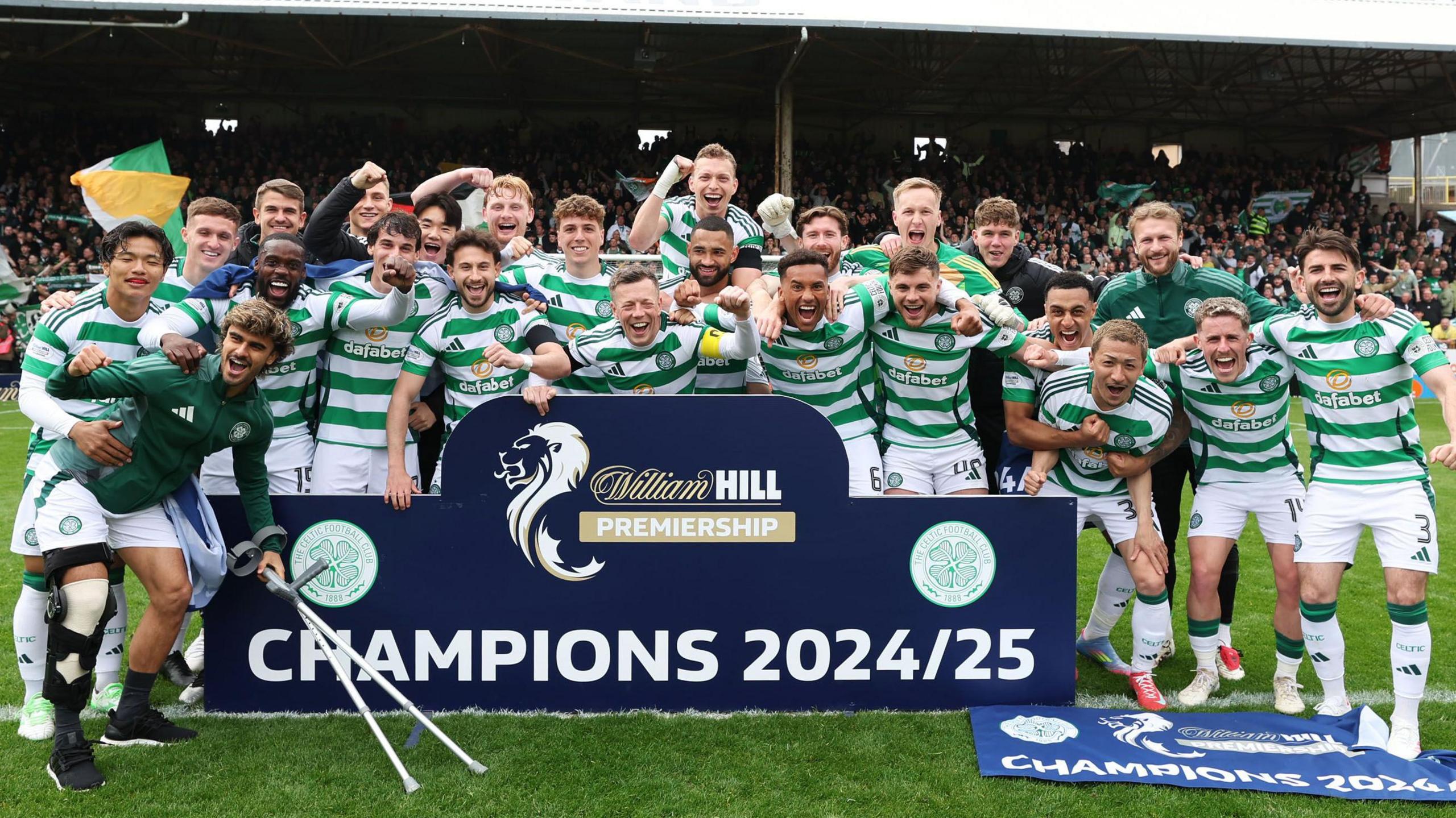
- Published18 June 2023

